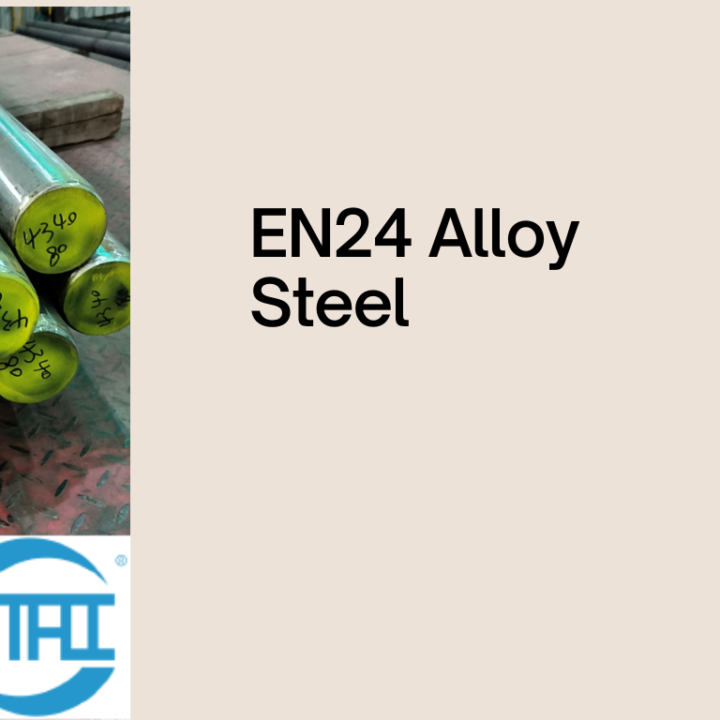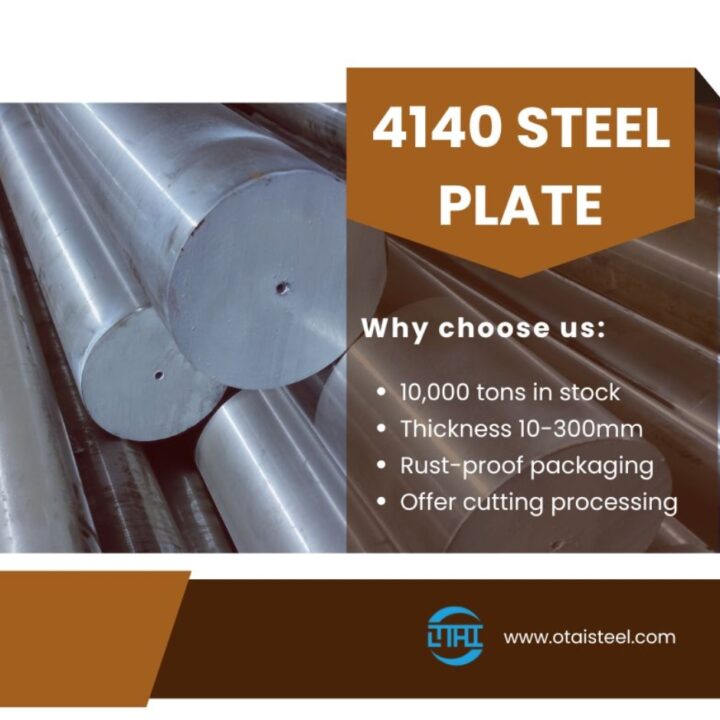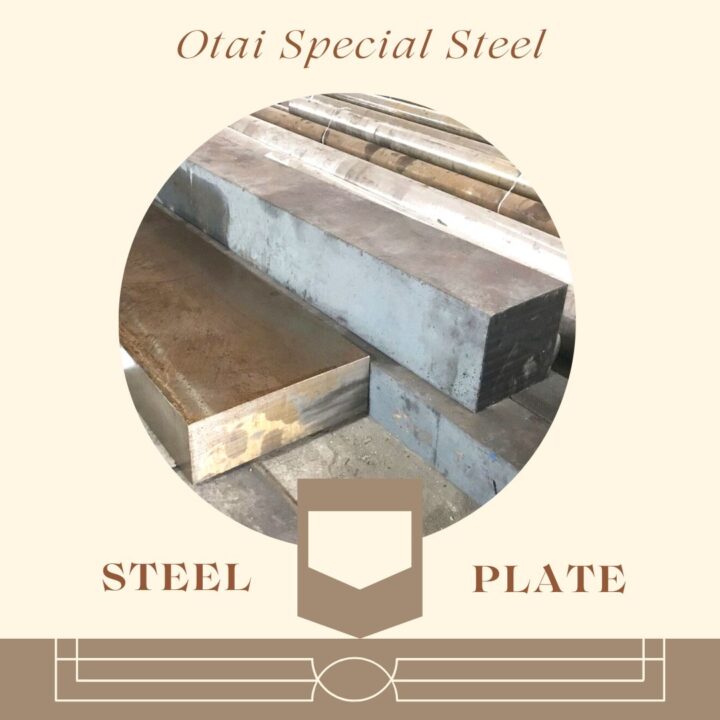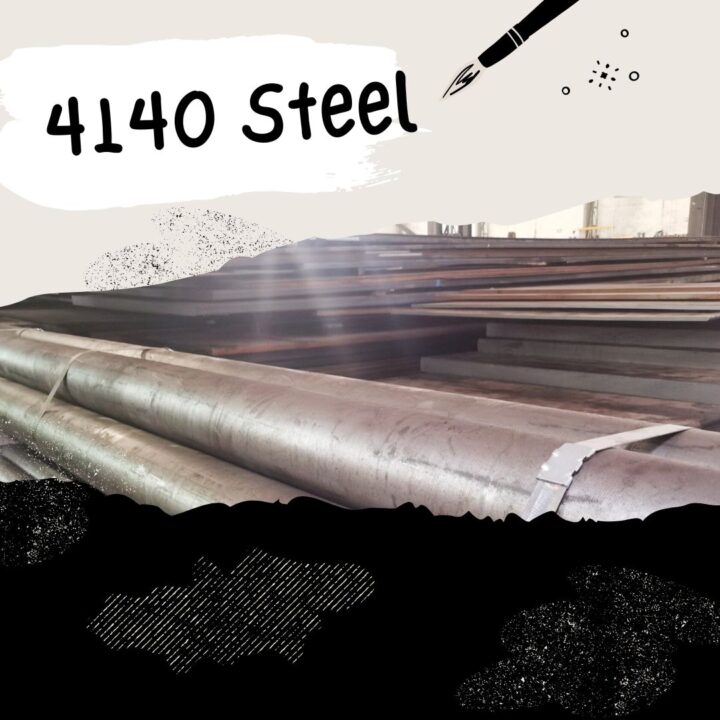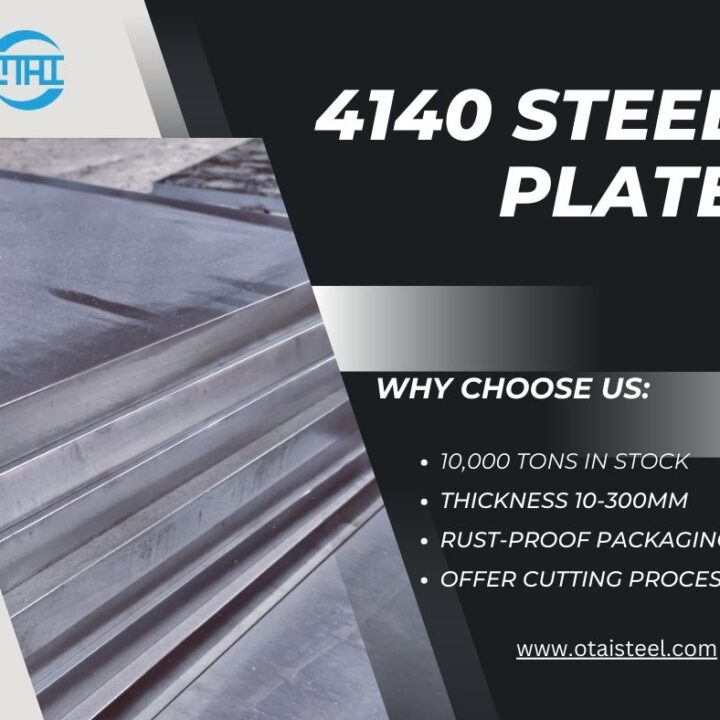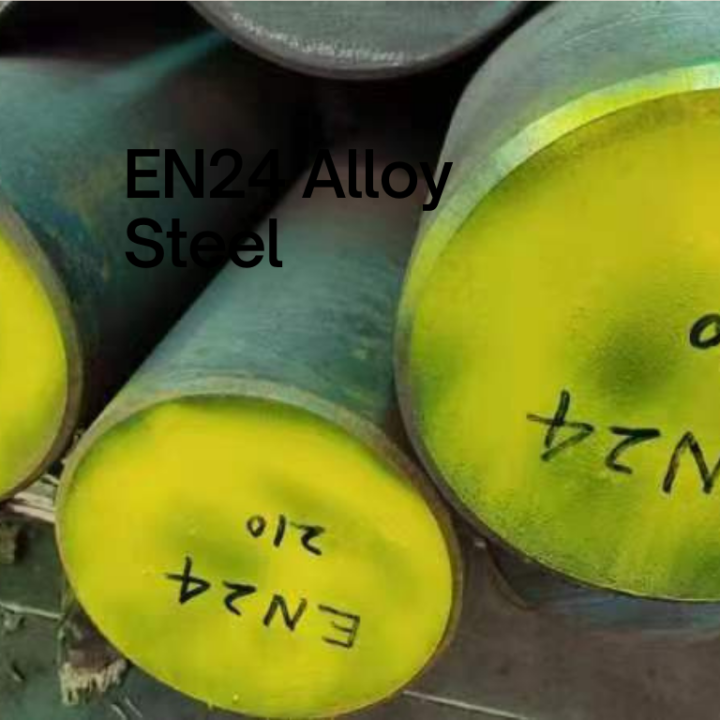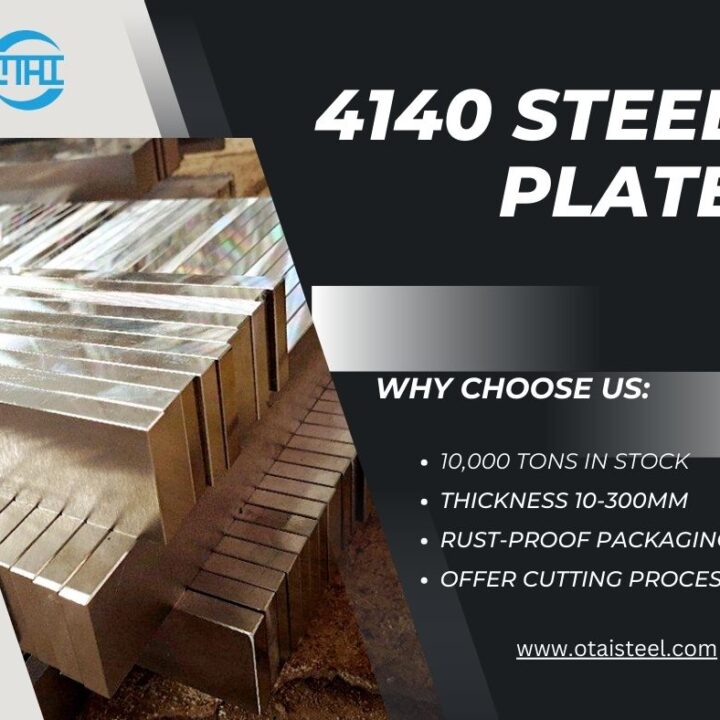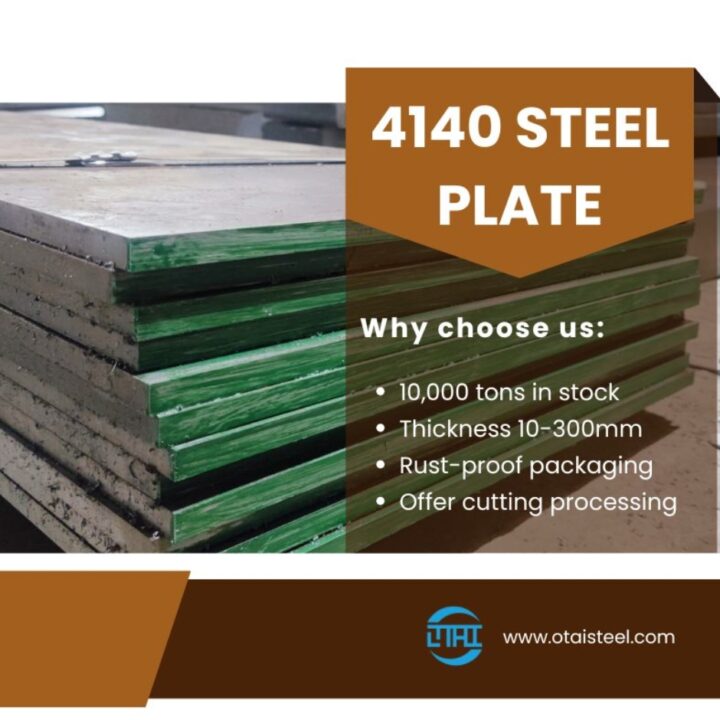4140 steel plate is a type of alloy steel with a carbon content of 0.38% to 0.43%. It also contains significant amounts of chromium, manganese, and molybdenum, which contribute to its unique properties. This combination of elements imparts outstanding strength, toughness, and wear resistance to the material, making it a preferred choice for various industrial applications. (4140 Steel Plate Industrial Applications)
Composition of 4140 Steel
The chemical composition of 4140 steel plate is as follows:
- Carbon: 0.38% – 0.43%
- Manganese: 0.75% – 1.00%
- Phosphorus: 0.035% (maximum)
- Sulfur: 0.040% (maximum)
- Silicon: 0.15% – 0.35%
- Chromium: 0.80% – 1.10%
- Molybdenum: 0.15% – 0.25%
Mechanical Properties of 4140 Steel Plate
– Strength and Toughness
One of the most remarkable features of 4140 steel plate is its high tensile strength and toughness. It can withstand heavy loads and impacts without fracturing or deforming, making it suitable for demanding industrial applications.
– Hardness and Wear Resistance
4140 steel plate can be heat-treated to achieve high hardness levels, enhancing its resistance to abrasion and wear. This property is beneficial for components subjected to continuous friction and surface contact.
– Machinability
Despite its high hardness, 4140 steel plate has good machinability when proper cutting tools and techniques are employed. This attribute allows for efficient fabrication and machining processes.
– Corrosion Resistance
While 4140 steel plate is not inherently corrosion-resistant like stainless steels, its composition offers moderate resistance to corrosion when compared to carbon steels.
Heat Treatment of 4140 Steel Plate
The heat treatment process plays a crucial role in optimizing the mechanical properties of 4140 steel plate. Common heat treatment methods include quenching and tempering to achieve the desired combination of hardness, strength, and toughness.
4140 Steel Plate Industrial Applications
– Manufacturing Machinery and Equipment
4140 steel plate is extensively used in manufacturing machinery and equipment that require high strength and durability. Examples include gears, shafts, and machine components in industrial settings.
– Automotive and Transportation Industry
In the automotive sector, 4140 steel plate finds applications in manufacturing critical components like axles, crankshafts, and connecting rods due to its excellent mechanical properties.
– Oil and Gas Equipment
The oil and gas industry relies on 4140 steel plate for the production of drill collars, valves, and other components exposed to harsh operating conditions.
– Tool and Die Making
4140 steel plate is commonly used for tool and die making, where high hardness and wear resistance are crucial for long-lasting performance.
Advantages of Using 4140 Steel Plate
– Versatility and Adaptability
The versatility of 4140 steel plate makes it suitable for diverse applications across multiple industries, providing reliable solutions for a wide range of needs.
– Cost-Effectiveness
Considering its impressive mechanical properties, 4140 steel plate offers cost-effective solutions, providing long-term value and reducing maintenance and replacement costs.
– Longevity and Durability
The combination of strength, toughness, and wear resistance ensures the longevity and durability of components made from 4140 steel plate, even under challenging conditions.
Considerations for Working with 4140 Steel Plate
– Welding and Joining Techniques
When welding 4140 steel plate, it is essential to choose appropriate techniques and use preheat and post-weld heat treatment to avoid weld cracking and maintain the material’s properties.
– Post-Weld Heat Treatment
Following welding, post-weld heat treatment may be necessary to restore the mechanical properties of the material affected during the welding process.
– Machining Guidelines
Given its high hardness, 4140 steel plate requires suitable machining guidelines and cutting tools to achieve accurate results without compromising the material’s integrity.
4140 steel plate proves to be a highly versatile and durable material, finding applications in manufacturing machinery, construction, automotive, oil and gas, and tool and die making. Its exceptional strength, toughness, and wear resistance make it a reliable choice for various industrial needs, providing cost-effective solutions and ensuring long-term performance. (4140 Steel Plate Industrial Applications)
